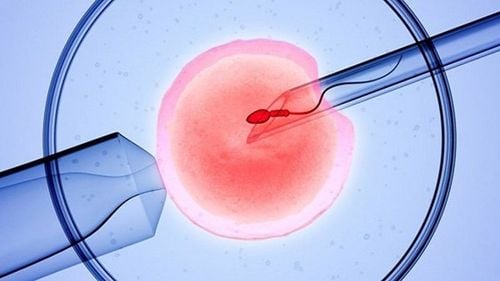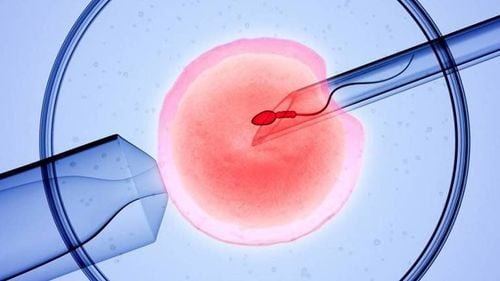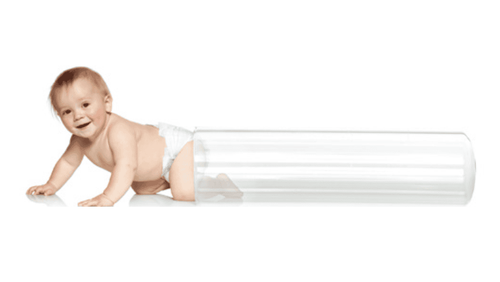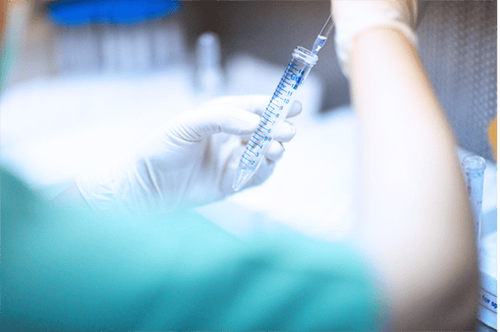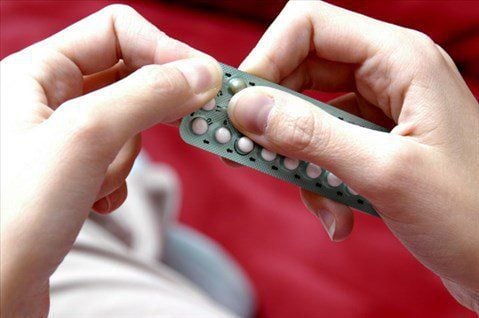This is an automatically translated article.
Although it has been around for more than two decades, intracytoplasmic sperm injection (ICSI) is still considered a breakthrough procedure for the treatment of male infertility. In ICSI treatment, only one sperm is injected directly into an egg. Below are some frequently asked questions related to the method of intracytoplasmic sperm injection.
1. Who is ICSI for?
ICSI is usually indicated in cases of:
Husband has no sperm in his semen Low sperm count Slow moving sperm Abnormally shaped sperm Damaged or missing vas deferens Vasectomy Tried IVF but had problems with fertilization Your doctor may recommend ICSI if you have used frozen eggs from a previous IVF cycle or you have chosen to have your embryos genetically tested infusion prior to insertion into the uterus.
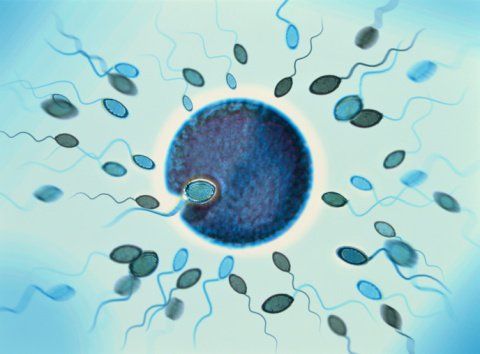
Phương pháp tiêm tinh trùng vào bào tương noãn là một quy trình đột phá để điều trị vô sinh nam
2. How does ICSI work?
ICSI treatment usually goes like this:
Collecting a sperm sample: The husband needs to provide a semen sample. A pregnancy specialist will take sperm from the sample. Your doctor may schedule a sperm collection along with the egg collection, or your doctor may pre-collect and freeze the sperm until your partner's eggs are ready to be fertilized.
Microsurgery: When there is little or no sperm in the sample, or no ejaculation is possible, the doctor can perform microsurgery to remove sperm from the testicles or from the vas deferens.
Tissue sampling: If microsurgery doesn't work, the doctor will take a tissue sample from inside the testicle that may contain sperm.
Egg collection: The wife will be injected with gonadotropin, a fertility drug to stimulate the ovaries. The doctor will administer anesthesia and insert an ultrasound probe through the vagina to examine the ovaries and look for follicles. The doctor then inserts a thin needle into the vaginal wall to remove the egg from the follicle, removing 8 to 15 eggs.
Insemination: the doctor will inject sperm directly into each egg. Three days later, each successfully fertilized egg becomes an embryo.
Embryo transfer: Depending on the age and other factors of the wife, the doctor will use a thin catheter inserted through the cervix to insert 1 to 5 embryos into the uterus.
Embryo development: If the procedure is successful, an embryo will implant in the uterine wall and develop into a baby. Excess embryos can be frozen and used in future fertilization cycles. If multiple embryos are transferred, the chances of pregnancy are higher, but women are also at risk of having multiples. According to statistics about 20% of babies born through ICSI are twins, triplets or more
Pregnancy test: Usually the wife will get the results checked about two weeks after the embryo is placed in the uterus.
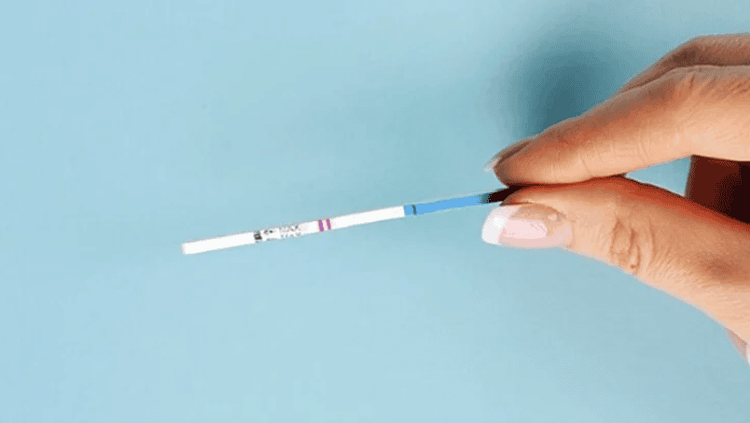
Có thể kiểm tra kết quả thụ tinh sau khoảng hai tuần sau khi phôi được đặt vào tử cung
3. How long does it take to complete ICSI?
It takes about 4 to 6 weeks to complete an ICSI insemination.
The wife needs to wait for the ovaries to respond to the drug and for the eggs to mature. While on medication, the wife should make an appointment to see her doctor every two or three days for blood tests and ultrasounds. On the day of egg collection, both husband and wife need to spend several hours at the clinic to collect eggs and sperm.
After about 3 to 5 days, the wife needs a follow-up visit to place the embryo in the uterus, which takes about an hour for the procedure. The wife will be tested for pregnancy about two weeks later.
4. What is the success rate of the ICSI method?
The success rate of the ICSI method depends on the couple's fertility problems and age. According to some statistics, the percentage of ICSI cycles that result in a live birth (where at least one baby is born) is about:
40% for women 34 and under 31% for for women 35 to 37 years old 21% for women 38 to 40 years old 11% for women 41 to 42 years old 5% for women 43 years of age and older

Tỷ lệ thành công của phương pháp ICSI phụ thuộc vào tình trạng từng cặp vợ chồng
5. What are the advantages of ICSI?
Advantages of ICSI include:
ICSI is very effective in the treatment of male infertility: This method helps men who do not produce sperm or have a very low sperm count to become fathers. .
Increase fertility: If you have not had success with IVF due to problems fertilizing an egg, using ICSI during your next treatment can improve your chances of fertilization.
Can use frozen eggs: doctors believe that ICSI technique will make fertilization more effective than if using frozen eggs.
6. What are the disadvantages of ICSI?
Expensive and time consuming: The ICSI method needs to be carried out in the laboratory and combines high cost drugs. In addition, the wife needs to be monitored for reactions to fertility drugs, regularly have blood tests and ultrasounds.
A genetic disorder that can be passed on to the child: If the father has genes for fertility problems such as low sperm count or lack of vas deferens, a male child may be born with inherited like the father. Therefore, it is important to screen for genetic disorders and consult a doctor before performing ICSI.
Potential complications for babies: Some studies suggest that ICSI may slightly increase the rate of birth defects such as Angelman syndrome and low urinary tract malformations. However, more research is needed as there are not enough data to draw firm conclusions.
Risk of multiple pregnancy: Because a doctor may place more than one embryo in a wife's ovaries during treatment, the chance of having twins or having multiples is about 20%. Some may consider this a blessing, but carrying multiples increases the risk of miscarriage and other complications like preterm labor...

Phương pháp tiêm tinh trùng vào bào tương noãn làm tăng cơ hội mang đa thai
7. How much does ICSI treatment cost?
ICSI method is an advanced method with many outstanding advantages in infertility treatment, so the cost per treatment is also very high.
In the United States, the average cost for a treatment is $12,400 (nearly 300 million). This amount varies, depending on the health situation of both husband and wife, the amount of medicine needed, the accompanying tests. Therefore, the most effective way is for couples to visit and consult with reputable treatment facilities.
Vinmec IVF Reproductive Center is the address of infertility - infertility treatment chosen by many couples. So far, the Center has performed fertility support for over 1000 infertile couples with a success rate of over 40%. This rate is equivalent to developed countries such as the UK, USA, Australia,...
The center gathers a team of leading experts in the field of obstetrics and gynecology nationally and internationally, trained in centers leading in the world such as in the US, Singapore, Japan, Australia and famous fertility centers in the world.
With a high level of expertise and extensive experience, Vinmec IVF Center's experts are capable of synchronously and comprehensively deploying the most advanced assisted reproductive techniques today, helping realize the dream of becoming a parent of hundreds of families across Vietnam.
Please dial HOTLINE for more information or register for an appointment HERE. Download MyVinmec app to make appointments faster and to manage your bookings easily.
Reference source: babycenter.comSEE MORE
Factors affecting the results of intracytoplasmic sperm injection (ICSI) Learn about intracytoplasmic sperm injection (ICSI) Go to IVF Vinmec - A short path for families who want to cure infertility fertility, infertility




